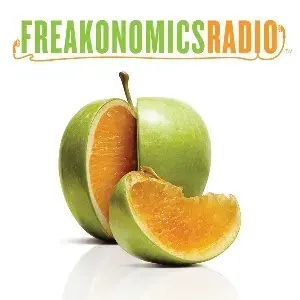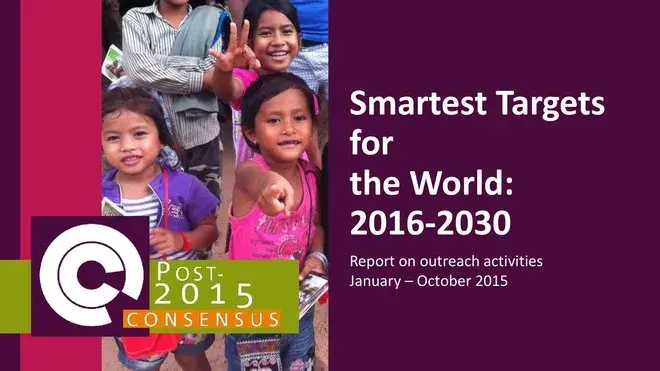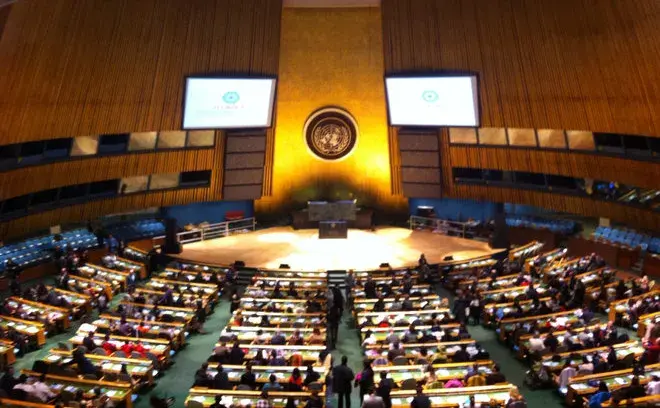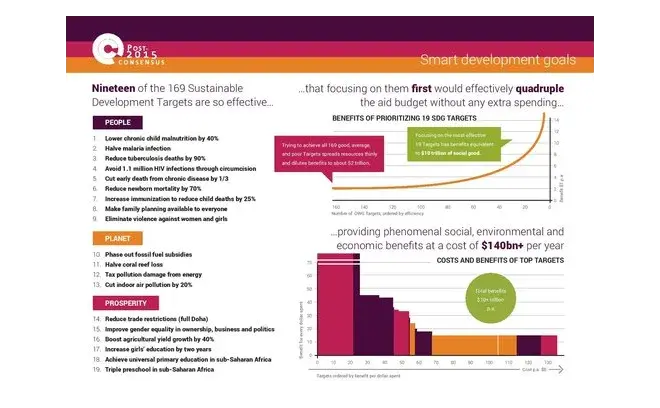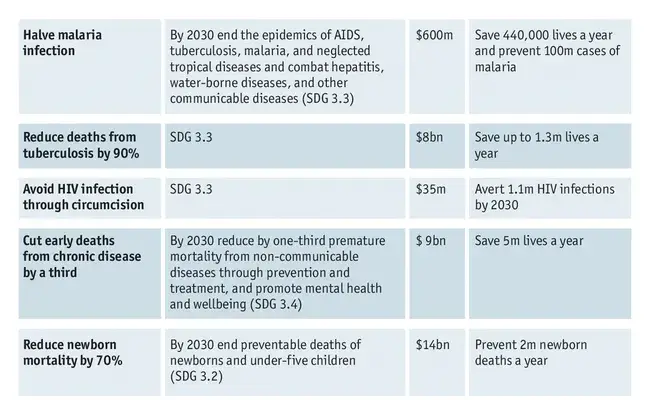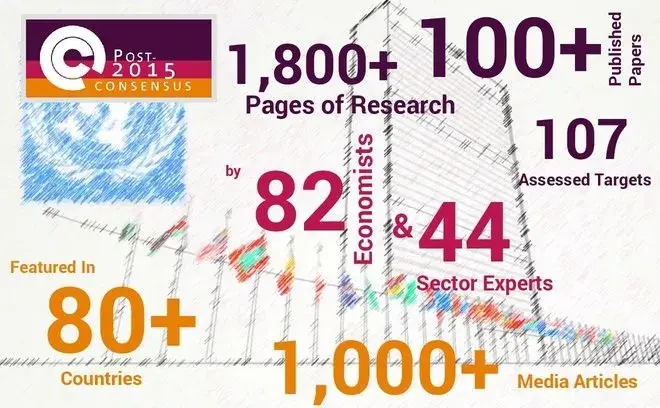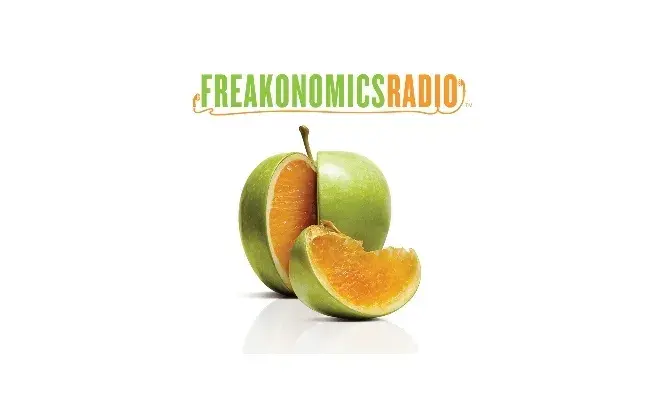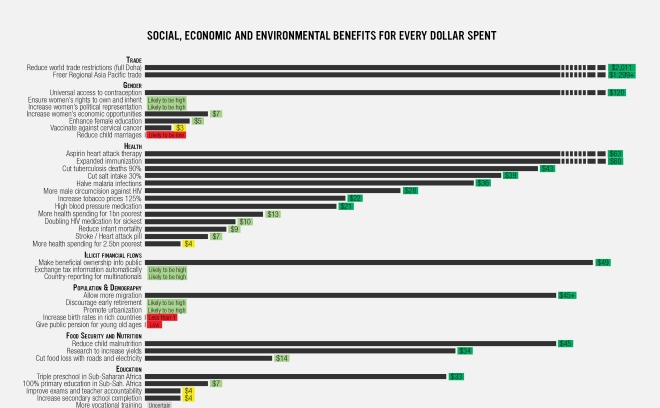Post-2015 Consensus
What are the smartest targets for the post-2015 development agenda?
In a world of limited resources, we can’t do everything, but how should we prioritize? The Copenhagen Consensus Center provides information on which targets will do the most social good relative to their costs. The final decision on choosing goals will definitely rest on a number of factors, not just economics – but knowing the costs and benefits provides an important piece of information.
The Post-2015 Consensus brought together, renowned experts from the UN, NGO and private sectors with 60 teams of economists to produced 100+ research papers to establish the most effective targets for the post-2015 development agenda within 22 core issue areas: Air Pollution, Biodiversity, Climate Change, Conflict & Violence, Data for Development, Education, Energy, Food Security, Gender Equality, Governance & Institutions, Health: Chronic Diseases, Health: Health Systems, Health: Infant Mortality & Maternal Health, Health: Infectious Diseases, Infrastructure, Illicit Financial Flows, Nutrition, Population & Demography, Poverty, Science & Technology, Trade, and Water & Sanitation.
An Expert Panel including two Nobel Laureates has reviewed all of this research and identified 19 targets that represent the best value-for-money in development over the period 2016 to 2030.
Only have three minutes? Download the 1-page overview of all cost-benefit research results, and for background watch our introduction video to the Post-2015 Consensus project below.
Effective investments for today’s children are fundamental for a better and more equitable world in the future. The Copenhagen Consensus Center brings a simple but compelling logic to this endeavor: if we want to make sure that this world is realized for our children, let’s focus on the investments that will generate the most good”.
- Richard Morgan, UNICEF Senior Advisor on the Post-2015 Development Agenda
Nobel Laureates Guide to Smarter Global Targets to 2030
Over the past 18 months, the Copenhagen Consensus Center has published 100+ peer-reviewed analyses from 82 of the world’s top economists and 44 sector experts along with many UN agencies and NGOs. These have established how effective 100+ targets would be in terms of value-for-money. These analyses take into account not just the economic, but also health, social and environmental benefits to the world.
An Expert Panel including two Nobel Laureates has reviewed this research and identified 19 targets that represent the best value-for-money in development over the period 2016 to 2030, offering more than $15 back on every aid dollar invested.
Reaching these global targets by 2030 will do more than $15 of good for every dollar spent.
In a Hurry and interested in the 19 most bang-for-the-buck post-2015 sustainable development targets? Download our project overview PDF here.
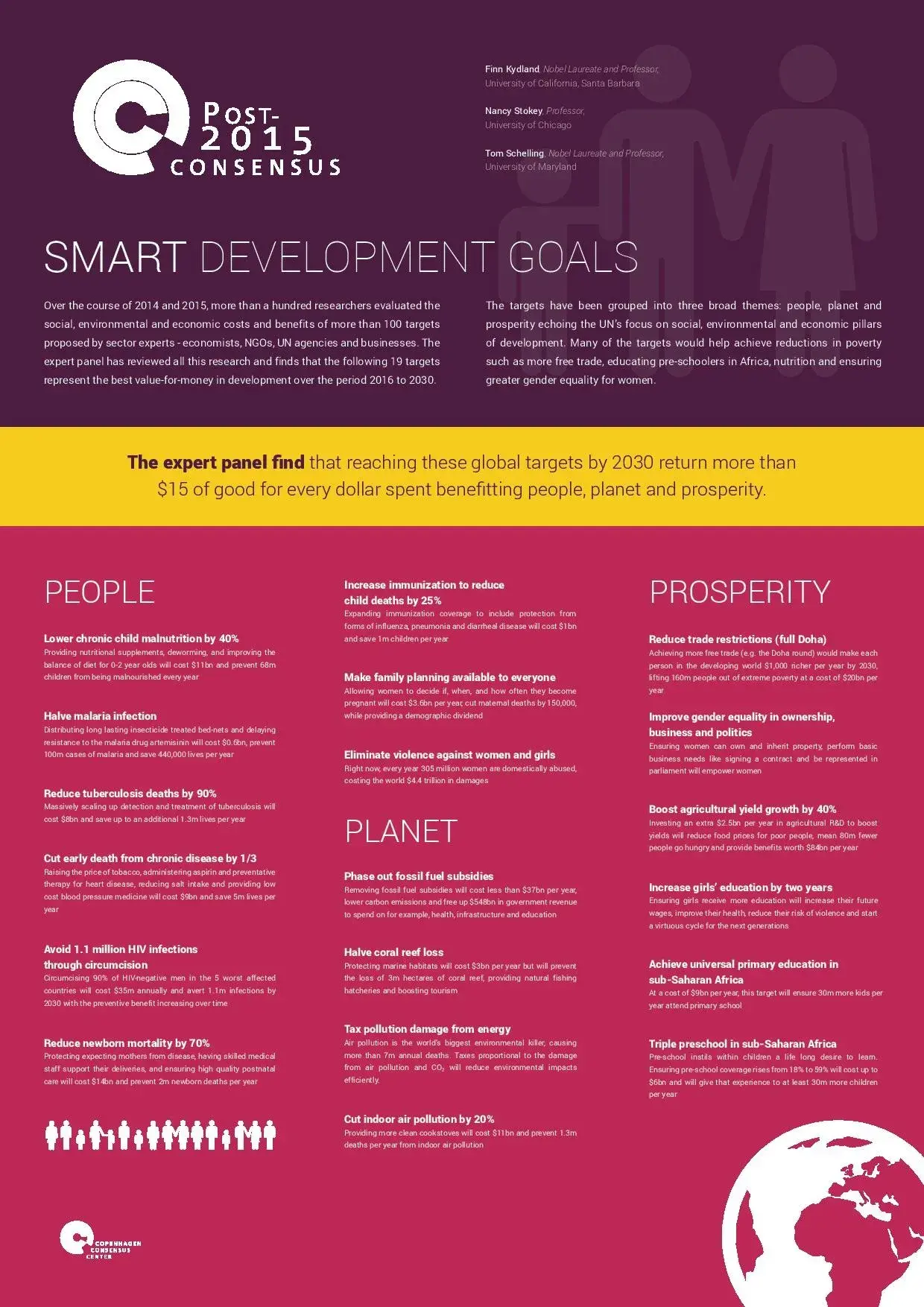
The Nobel Laureates' Guide To The Smartest Targets For The World
In 2000, the Millennium Development Goals set a few, highly effective targets for the world, e.g. halve the proportion of poor and hungry and reduce childhood mortality by two-thirds. The goals have been a huge success. Now, the UN and the world is to decide which new goals will take over in 2015.
The UN s Open Working Group has proposed 169 targets. But we need to know which are most effective. Copenhagen Consensus has asked 60 teams of the world’s top economists to highlight phenomenal, good, fair and poor targets, weighing up the social, environmental and economic benefits and costs.
The world will spend $2.5 trillion in development aid from 2015-2030, and these goals will influence a large part of that spending. Making just one target better can do hundreds of billions of dollars worth of good.
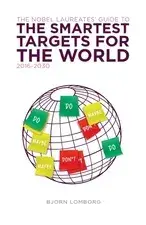
The Economist
An overview of Copenhagen Consensus' ground-breaking research which is shaping the thinking for the 193 governments about to prioritize the smartest development goals for 2016-2030. If you've just read the article in The Economist you might be interested in exploring more about our project, and the research we've undertaken so we have put together an online supplement with more in-depth information.
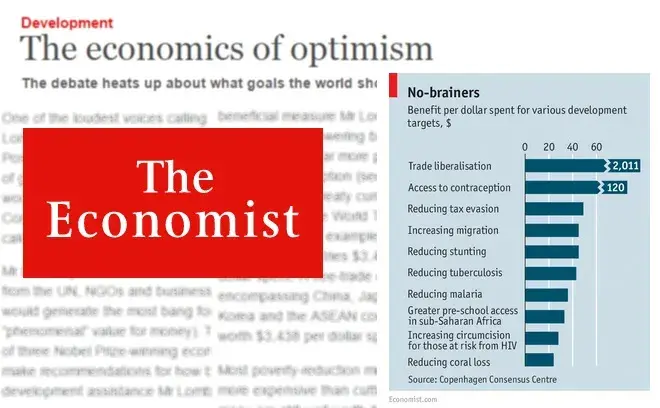
Prioritizing Development
A Cost-Benefit Analysis of the United Nations' Sustainable Development Goals
This book is a unique guide to making the world a better place. Experts apply a critical eye to the United Nations' Sustainable Development agenda, also known as the Global Goals, which will affect the flow of $2.5 trillion of development aid up until 2030. Renowned economists, led by Bjorn Lomborg, determine what pursuing different targets will cost and achieve in social, environmental and economic benefits. There are 169 targets, covering every area of international development - from health to education, sanitation to conflict. Together, these analyses make the case for prioritizing the most effective development investments. A panel of Nobel Laureate economists identify a set of 19 phenomenal development targets, and argue that this would achieve as much as quadrupling the global aid budget.
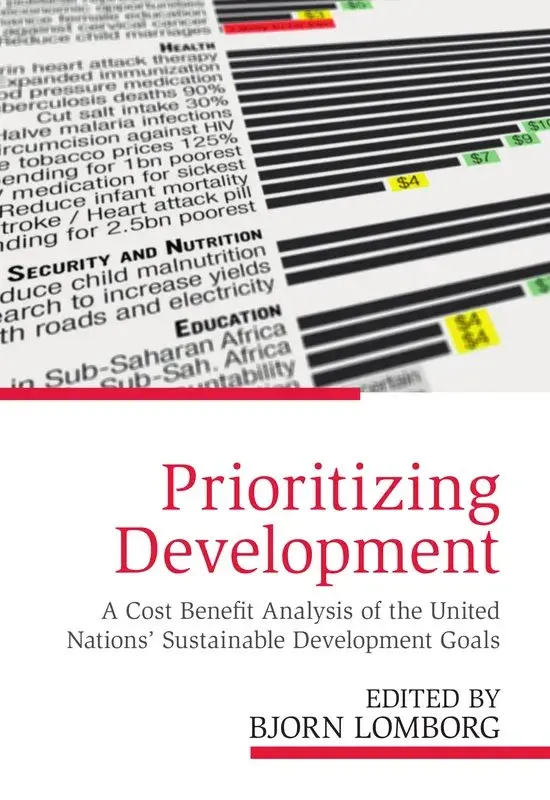
Foreign Affairs essay
The November/December 2014 issue of Foreign Affairs features an 8 page article by Bjorn Lomborg. The article entitled “Promises to Keep Crafting Better Development Goals”, highlights the work of the Post-2015 Consensus project and the valuable knowledge the project is injecting into the post-2015 debate.
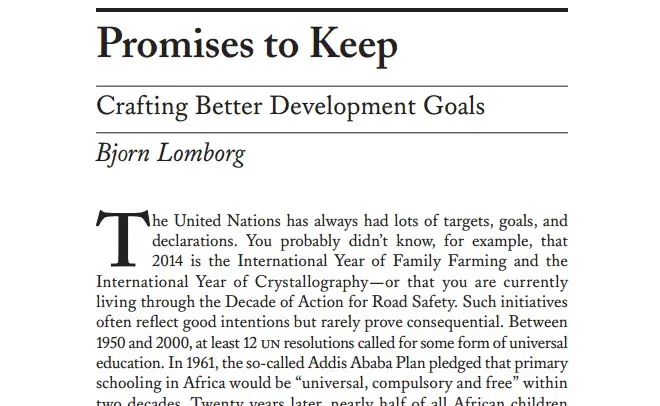
Fixing the World, Bang-for-the-Buck Edition
Freakonomics podcast –the podcast that explores the hidden side of everything, recently interviewed Bjorn Lomborg. During the interview Bjorn describes in depth the work of the Copenhagen Consensus Center and the Post-2015 Consensus project and why this work is so important. Find out more about our project by listening to the podcast.
